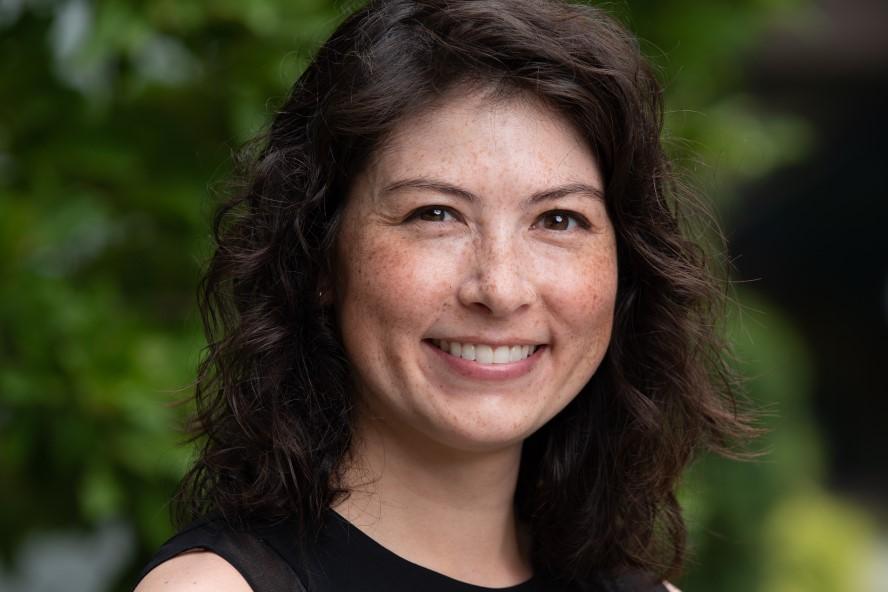-

Hear from Monica Toft, Academic Dean
Learn how Monica Toft, Academic Dean, is shaping the study of global affairs and diplomacy at Fletcher.
Hear from Prof. Toft -

Explore Fletcher academics in action
Fletcher Features offers insights, innovation, stories and expertise by scholars.
Get global insights -
Get application tips right from the source
Learn tips, tricks, and behind-the-scenes insights on applying to Fletcher from our admissions counselors.
Hear from Admissions -

Research that the world is talking about
Stay up to date on the latest research, innovation, and thought leadership from our newsroom.
Stay informed -
Meet Fletcherites and their stories
Get to know our vibrant community through news stories highlighting faculty, students, and alumni.
Meet Fletcherites -

Forge your future after Fletcher
Watch to see how Fletcher prepares global thinkers for success across industries.
See the impact -

Global insights and expertise, on demand.
Need a global affairs expert for a timely and insightful take? Fletcher faculty are available for media inquiries.
Get in Touch
Tackling the Tough Problems
Decolonization expert Elisabeth Leake shares tools for unknotting tangled histories.

Elisabeth Leake is a detective. She unravels far-away mysteries that can cause global shockwaves. An expert on 20th-century international relations with an emphasis on decolonization and the Cold War, she serves as the Lee E. Dirks Chair in Diplomatic History and is a member of the Murrow Center on Public Diplomacy at the Fletcher School.
"My goal is to show students the importance of history for thinking about the present and the future. I want to give them the tools to disentangle the complicated issues they will tackle in their careers," says Leake, whose new book is Afghan Crucible: The Soviet Invasion and the Making of Modern Afghanistan.
She focuses her scholarly spotlight on South Asia—India, Pakistan, and Afghanistan. That region, according to her, offers an essential lens for understanding the ongoing impact of decolonization around the world. This long-term process continues more than 75 years after the Partition of India which marked the end of British rule.
"You have to study supposedly out-of-the-way places, not just major centers of power, to understand other unexpected dynamics that might emerge. You have to think about regions or peoples whom you might not anticipate will have great influence but nonetheless do," says Leake. Her first book The Defiant Border: The Afghan-Pakistan Borderlands in the Era of Decolonization, 1936-65 examined why Pakistan's Federally Administered Tribal Areas were—and remains—largely autonomous.
"Decolonization is not a single moment of national independence," says Leake who comes to Fletcher from the University of Leeds in the United Kingdom where she was an associate professor of international history. In her class on global decolonization, she helps students to understand how nation states develop—what new infrastructures they create, how elites and everyday people reimagine their nations, and how they define their new national identities and cultures.
"In this course I'm inviting students to wrestle with—and embrace—how messy and complicated the past is. I want them to learn to appreciate that we must recognize all these different factors—the interests and desires of state and non-state actors—to understand historical processes and the world today."
To do this, Leake scrutinizes decolonization on multiple levels—its ramifications from the international to the individual level. For example, India's partition was one of the largest forced migrations in modern history. "Violence and sexual violence accompanied that experience for millions of South Asians. We have to recognize that people had to live through that. Not only did it affect relations between India and Pakistan but daily lives and people's outlooks," she says.
Leake also scrutinizes what it means to be a 'modern' state in her class. For decades, many policymakers and scholars presumed the goal of modernization was the creation of either a Western-style democratic state or a socialist one. But other elites, especially in the decolonizing world, proposed radically different theories about how politics and society should be ordered.
"These futures are rooted in very different interpretations of the past. We need to interrogate this idea that modernity only leads to one or two obvious end results," says Leake. "How did politicians, activists, and intellectuals in the past envision what it meant to be modern and what utopian visions did they have for the futures of their countries?"
"My role is to help students develop their own ideas and perspectives," says Leake. "I place a real emphasis on students sharing their own points of view. I'm struck by how sharp Fletcher's students are and their intellectually curiosity. That's what I'm keen to facilitate. I want students to love history as much as I do."

